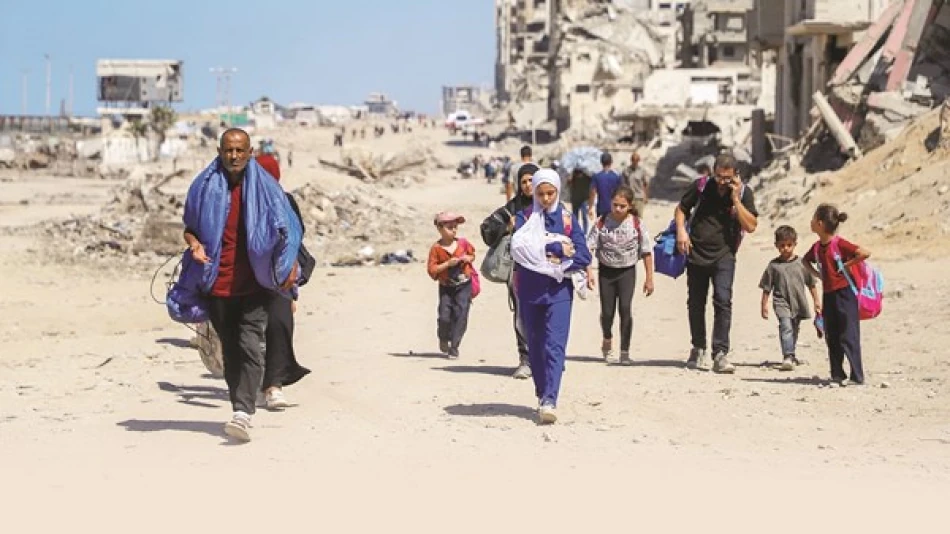
UN Accuses Israel of Tightening Gaza Blockade, Deepening Humanitarian Crisis
The UN human rights office condemned Israel's interception of 40 aid boats headed to Gaza in international waters, calling it an expansion of its illegal blockade. Israeli forces boarded the vessels carrying humanitarian supplies and foreign activists, detaining all passengers before announcing plans to deport them to Europe. The incident comes as Israel intensifies its siege of Gaza City, blocking the main road and telling residents this is their "last chance" to flee south.
Thameen al-Kheetan, spokesperson for the UN High Commissioner for Human Rights, said Israel has a legal obligation as an occupying power to ensure food and medical supplies reach civilians. "Israel must guarantee the delivery of medicine and food supplies to the population to the full extent of available means, or ensure and facilitate neutral humanitarian relief programs," he stated.
Live footage from the boats showed Israeli soldiers in helmets and night vision goggles boarding the vessels while passengers huddled together wearing life jackets with their hands raised. According to tracking systems from the "Steadfastness Fleet" website, all 40 boats were listed as "intercepted" or "presumed intercepted."
The maritime operation reflects Israel's broader strategy to maintain complete control over aid entering Gaza. For years, Israel has argued that its naval blockade prevents weapons from reaching Hamas, but critics say it collectively punishes Gaza's civilian population.
On land, Israeli tanks closed the main road leading to Gaza City yesterday, preventing residents who left the besieged area from returning. Defense Minister Israel Katz described this as a "final opportunity" for hundreds of thousands still inside to escape before what he called one of the war's largest operations.
The city's entire population of one million has been ordered to move south. But Israel's new policy creates a one-way exit - people can leave but cannot return, even to search for food or temporary shelter. This effectively traps anyone who stays behind.
"This is the last chance for Gaza residents who want to move south and leave Hamas elements isolated in Gaza City itself, facing the Israeli army's ongoing large-scale operations," Katz said in a statement.
The military pressure extends beyond evacuation orders. Israeli drones dropped tear gas and smoke bombs on a school sheltering displaced families in western Gaza City, causing suffocation among women and children. Local sources reported dense smoke filled the building where dozens of families had taken refuge, leading to panic and calls for help.
The school attack fits a pattern of strikes on displacement centers as Israel pushes to occupy Gaza City and force out its residents. Hundreds of thousands of Palestinians face catastrophic humanitarian conditions in the city.
In southern Gaza, Israeli bombing killed 10 Palestinians and wounded others at a food distribution center in the Mawasi area of Khan Younis. The strike targeted one of the few remaining sources of aid in an area Israel had previously designated as a "safe zone."
These developments show how Israel's military strategy now combines multiple pressure points - blocking aid by sea, preventing return by land, and attacking civilian infrastructure. The approach aims to make life impossible for anyone remaining in northern Gaza, but it also cuts off escape routes for those who change their minds about staying.
Most Viewed News

 Layla Al Mansoori
Layla Al Mansoori






